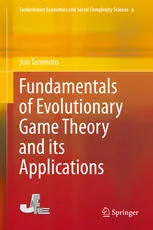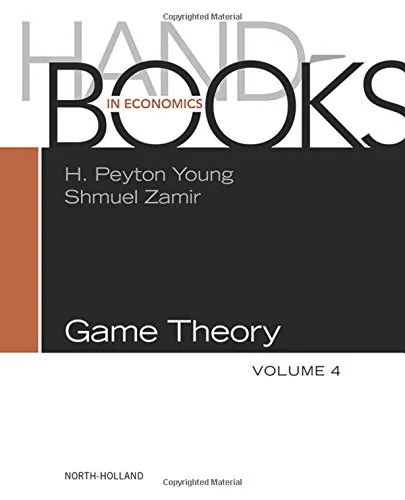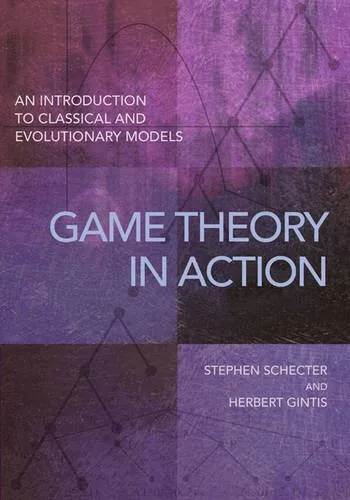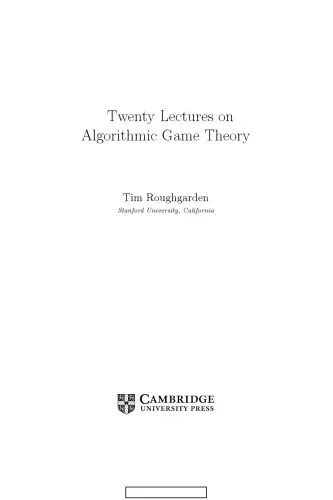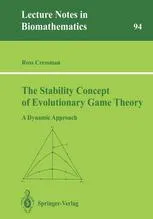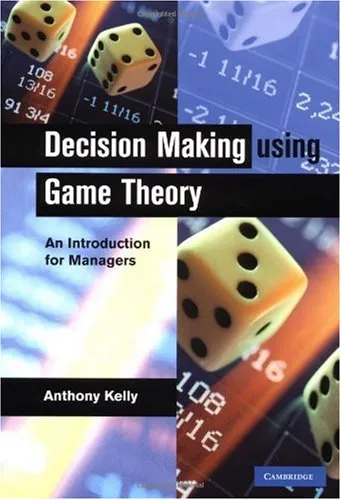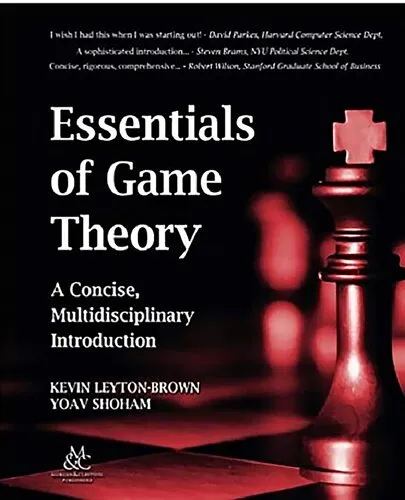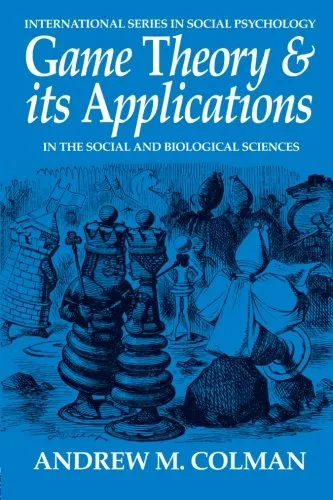Fundamentals of Evolutionary Game Theory and its Applications
4.5
Reviews from our users

You Can Ask your questions from this book's AI after Login
Each download or ask from book AI costs 2 points. To earn more free points, please visit the Points Guide Page and complete some valuable actions.Related Refrences:
Introduction to "Fundamentals of Evolutionary Game Theory and its Applications"
"Fundamentals of Evolutionary Game Theory and its Applications" is an insightful exploration into the intersection of game theory, mathematics, and evolutionary biology. Authored by Jun Tanimoto, this book provides a comprehensive yet approachable framework for understanding how strategic interactions evolve over time within diverse systems, ranging from biological ecosystems to human and societal dynamics.
In this book, readers are exposed to the powerful tools of evolutionary game theory (EGT), a branch of applied mathematics that merges classical game theory with Darwinian evolution principles. EGT has applications that span multiple disciplines, including economics, sociology, computer science, and biology.
Whether you are a researcher, practitioner, or curious enthusiast, this book offers the foundational knowledge and modern insights required to navigate this fascinating field. By emphasizing both the theoretical underpinnings and practical implications, "Fundamentals of Evolutionary Game Theory and its Applications" equips readers to understand and analyze real-world decision-making environments shaped by competition, cooperation, and evolving strategies.
Detailed Summary of the Book
The book is divided into methodical sections that introduce, explain, and expand on fundamental concepts of evolutionary game theory. It introduces the historical pillars of classical game theory and seamlessly transitions into evolutionary extensions. Beginning with basic definitions such as Nash Equilibria and payoff matrices, the text gradually delves into models such as the replicator dynamics, evolutionary stability, and their applications.
Through concrete and well-illustrated examples, the book demonstrates how evolutionary game theory applies to real-world phenomena. One of its key strengths is that it balances mathematical rigor with accessibility, making it suitable for readers from various backgrounds. Topics such as cooperation mechanisms, altruism, and their dynamics in population games are discussed in depth.
The author also bridges the gap between theory and practice by exploring computational simulations and experimental validation. Applications in diverse areas, including economics, social dilemmas, and biological systems like predator-prey dynamics, make the content practical and relatable. By the book's conclusion, readers gain a thorough understanding of both the theoretical grounds and how they transcend academic discussions to impact societal and ecological systems.
Key Takeaways
- The principles and concepts underlying evolutionary game theory, including Nash Equilibria and evolutionary stability.
- Insights into why cooperation and altruism evolve despite natural competition.
- A detailed understanding of replicator dynamics and equilibrium analysis.
- Applications of evolutionary game theory in economics, social dilemmas, and biological systems.
- The role of simulations and numerical experiments in validating theoretical predictions.
Famous Quotes from the Book
"Just as evolution shapes the biological world, so too does it sculpt the strategies by which individuals and populations interact in social and economic environments."
"In evolutionary game theory, the beauty lies in its simplicity: the rules of nature may be complex, but they often arise from simple interactions between individual agents."
"The study of cooperation teaches us a profound lesson – the survival of the fittest often depends on one's ability to collaborate."
Why This Book Matters
Today, the application of game theory extends far beyond textbook examples of rational decision-making. Evolutionary game theory has emerged as a transformative tool with profound implications for understanding complex systems that evolve over time. This book matters because it bridges the gap between classic game theory and its evolutionary extensions, making it a vital resource for academics and professionals alike.
As multidisciplinary studies become increasingly important, understanding how strategies evolve in competitive and cooperative contexts provides a framework for tackling real-world problems. This book equips readers with a versatile skill set to address contemporary challenges in areas like climate change, public health, and technological innovation through the lens of competition and cooperation.
Moreover, the book’s approachable style and comprehensive coverage ensure that even readers without advanced mathematical expertise can grasp essential concepts and engage with advanced applications. Its relevance spans academic, professional, and casual exploration, making it a valuable addition to the literature in game theory, decision science, and beyond.
In a world where strategic thinking is essential, "Fundamentals of Evolutionary Game Theory and its Applications" offers the intellectual toolkit to understand and navigate the evolving dynamics of everyday life.
Free Direct Download
You Can Download this book after Login
Accessing books through legal platforms and public libraries not only supports the rights of authors and publishers but also contributes to the sustainability of reading culture. Before downloading, please take a moment to consider these options.
Find this book on other platforms:
WorldCat helps you find books in libraries worldwide.
See ratings, reviews, and discussions on Goodreads.
Find and buy rare or used books on AbeBooks.
1307
بازدید4.5
امتیاز0
نظر98%
رضایتReviews:
4.5
Based on 0 users review
Questions & Answers
Ask questions about this book or help others by answering
No questions yet. Be the first to ask!
